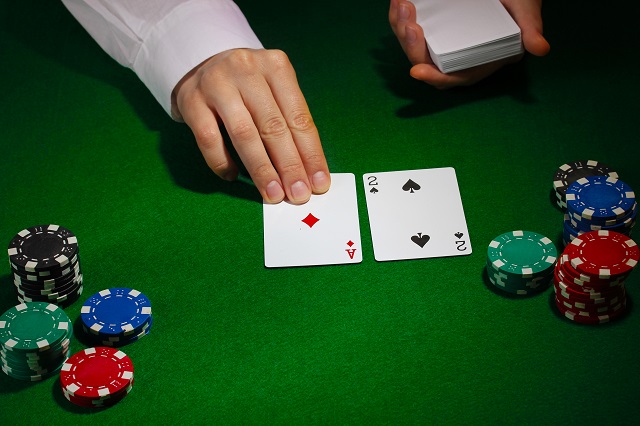
As one of the seminal games in poker, Texas hold ‘em is also one of the most strategic. This is good and bad depending on how you play poker. In general, the more skilled you are, the more you enjoy the game. However, there are many mistakes that amateur players make as they are building their skill. What are the most common mistakes? Here are some of the pitfalls that you need to avoid if you want to become a great Texas hold ‘em player.
As you avoid the mistakes below, you should actively try to improve the fundamentals of your game. You can click here for common terminology used in Texas hold ‘em, which is one of the most important things that you can do to improve in the game and avoid mistakes. Once you have all of these tricks in your bag, you will certainly be on the path to a more professional style of play.
Do Not Miss the Value Bet
One of the most common mistakes on the Texas hold ‘em table is to miss the value bet. If you are planning to call bets less than 80% of the pot and check the river, what do you do when your opponent checks? If you present your holding and your opponent has the upper hand, don’t be too early in missing the value bet just because the table is more competitive. The numbers are not on your side if you miss even one out of five value bets on the table.
Getting Psyched Out Across the Table
Everyone knows that poker is first and foremost a psychological game. However, do you really know what it means to get psyched out when you are playing? It can be difficult for an amateur to see how cards on the table can become psychological, but it does happen. In some way, your opponent will try to get under your skin personally. He may begin talking aggressively to you or show a bluff. No matter what he does, you should not try to “take revenge” at any point in the game. This will take you away from strategy.
Paying Aces Off
When we see an ace is our hole card, it’s justifiable to be happy about it. However, you have to know when to hold them and know when to fold them. This is really what separates the professionals from the amateurs in Texas hold ‘em. Amateurs tend to hold more than they fold in this situation. Even if you have a pair of pocket aces, remember that they are just a pair. Look to the rest of the table to make your final decision.
Showing Cards
If you show your cards, you can actually psych out many of your opponents. However, this usually only works on amateurs. Observant professionals will be able to read your physical tells – the signs that will really give away your style of play. This means that no one bluff will work twice, because the tells that you show will be subconscious. Sometimes it is best to simply respect your opponent and not get into these rather obvious psychological tactics.
Overbluffing
Knowing when to stop the bluff is a very important part of knowing how to play professional poker. Bluffing the donk is a term that describes how amateur players get upstaged by other beginners because they do not know the unwritten rules of the game. Beginners can be unpredictable. Before you try to set up the perfect bluff, thinking that your opponent will always play by the book, you should understand the capabilities of the people around the table.
Tags: poker


